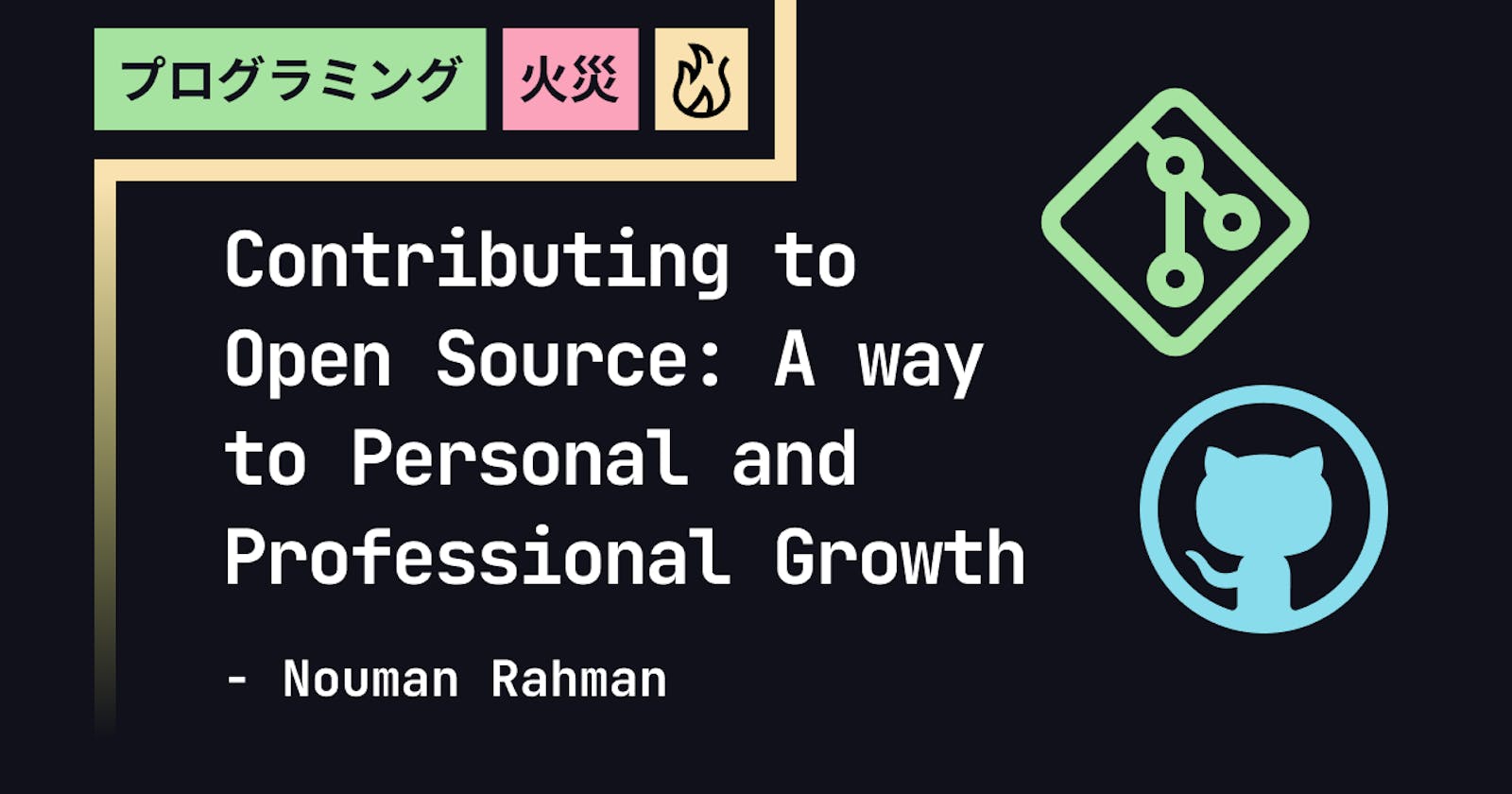In the world of software development, open source is more than just a buzzword; it's a thriving ecosystem of collaboration and innovation. Contributing to open-source projects not only benefits the wider community but also offers a valuable pathway for personal and professional growth. In this comprehensive article, we'll explore why open-source contributions are worth your time and how they can positively impact your career. Additionally, we'll delve into the tools, strategies, and best practices for successful open-source contributions, including the use of Git and GitHub, and tools like GitKraken.
The Power of Open Source
Before we dive into the benefits of contributing to open source, let's understand what open source means. Open-source software is built by a community of developers who collaborate and share their work freely. The source code is open and accessible to anyone, which means it can be viewed, modified, and distributed by anyone who wants to contribute.
Some of the most widely used software and frameworks, such as Linux, Python, and Git, are open-source projects. These tools form the backbone of the modern tech industry, and they exist thanks to the collective efforts of developers worldwide.
Personal Growth
1. Skill Development
Contributing to open source provides a fantastic platform to hone your technical skills. Whether you're a beginner or an experienced developer, you'll encounter a wide range of challenges, from fixing bugs to implementing new features. This hands-on experience can lead to substantial skill growth.
2. Problem-Solving Abilities
Open-source projects often have diverse and complex issues that require creative problem-solving. By tackling these challenges, you'll develop your critical thinking and troubleshooting abilities.
3. Code Quality and Best Practices
Working with experienced developers and reviewing their code can expose you to best practices and coding standards. This exposure can significantly improve your code quality and make you a better developer.
Professional Growth
1. Networking Opportunities
Contributing to open source allows you to connect with a global network of developers. You'll collaborate with peers, exchange ideas, and learn from experienced professionals. These connections can lead to new job opportunities and partnerships.
2. Building a Portfolio
Open-source contributions provide concrete examples of your skills and commitment to potential employers. Your GitHub profile becomes a living portfolio that showcases your abilities to future colleagues and recruiters.
3. Learning from the Best
Open-source projects often attract top talent. By contributing, you get a front-row seat to observe and learn from some of the best developers in the industry. Their feedback can be invaluable for your growth.
Getting Started with Open Source Contributions
Now that you understand the benefits, here's how to get started:
1. Choose Your Project
Select an open-source project that aligns with your interests and goals. Start with projects you use regularly; this way, you can give back to the tools you rely on.
2. Read the Documentation
Familiarize yourself with the project's documentation, code of conduct, and contribution guidelines. This step is crucial to ensure your contributions meet the project's standards.
3. Start Small
Begin with small, manageable tasks, such as fixing typos in documentation or addressing beginner-friendly issues labeled as "good first issue" or "beginner-friendly." This helps you get acclimated to the project's workflow.
4. Engage with the Community
Join the project's communication channels, such as mailing lists, forums, or chat rooms. Introduce yourself, ask questions, and seek guidance when needed. Building relationships with the community is a significant part of the open-source experience.
5. Use Git and GitHub Effectively
A crucial aspect of open-source contributions is version control. Git, in combination with platforms like GitHub, is the backbone of collaborative coding. Learn to use Git for tasks like branching, committing, and merging. GitHub provides a platform for hosting and collaborating on open-source projects. Familiarize yourself with GitHub's features, including pull requests, issues, and project boards.
6. Employ Tools like GitKraken
Tools like GitKraken offer a graphical interface for Git, making it easier to visualize branches, commits, and merge histories. These tools can streamline your Git workflow and help you stay organized when contributing to open-source projects.
7. Be Patient and Persistent
Contributing to open source can be challenging, especially when you're just starting. Be patient with yourself, and don't be discouraged by initial setbacks. Keep learning, keep contributing, and your skills will grow.
Closing Thoughts
Contributing to open source isn't just about writing code; it's about becoming part of a global community of passionate developers. It's a journey of personal and professional growth that offers invaluable experiences and opportunities.
So, whether you're a seasoned developer looking to expand your horizons or a newcomer eager to learn and make a difference, open source is a welcoming playground for you. Dive in, embrace the collaborative spirit, and watch your skills and career flourish.
- [Nouman Rahman]
